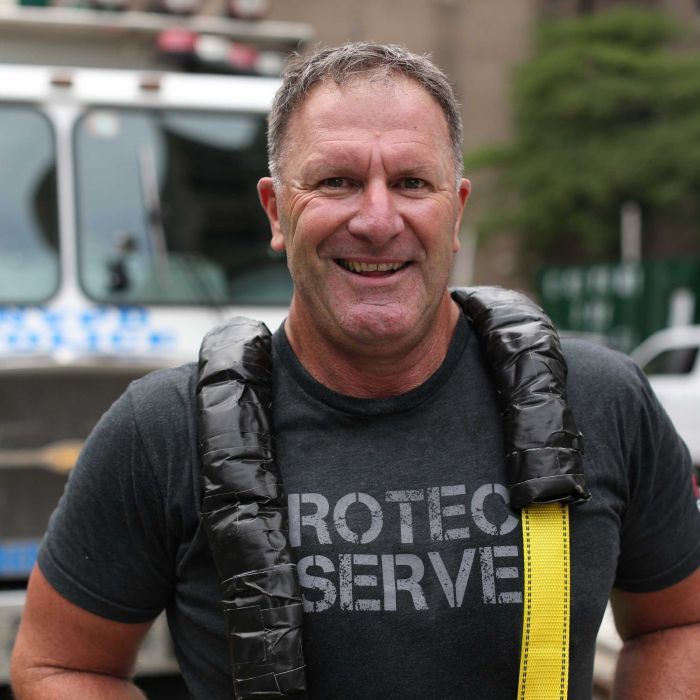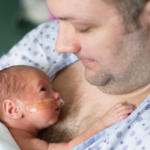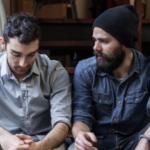What is post-traumatic stress disorder (PTSD)?
PTSD is a health condition that affects some people who have:
The types of trauma that usually lead to PTSD are serious injury, sexual violence and actual or threatened death.
How common is PTSD?
Three out of four people in Australia experience a traumatic event at some point in their lives but most of them do not develop PTSD.
Around 8% of males and 14% of females in Australia experience PTSD in their lifetime.
What are the symptoms of PTSD?
People diagnosed with PTSD experience these four types of symptoms for more than one month, with associated distress and problems with relationships (and school, if relevant):
What causes PTSD?
The reasons why some people experience PTSD, while others don’t, are unknown. Adverse events in childhood, and more severe or repeated trauma, increase the risk of PTSD.
PTSD seems to be related to how people’s stress hormone system operates, and to changes to their nervous system and immune function.
What someone with PTSD might be feeling
People with PTSD re-experience their trauma. Unwanted memories may occur, either in response to triggers or spontaneously. Reminders of the trauma can cause emotional distress or physical reactions. Flashbacks and nightmares can also occur. Reexperiencing the trauma in these ways intrudes upon day-to-day life.
PTSD can cause hyperarousal, which makes someone feel like they’re always ‘on alert’ or ‘jumpy’. They may have difficulty concentrating or remembering things because they’re distracted by being so alert to everything happening around them. Hyperarousal can lead to anger problems and trouble sleeping.
Distress from memories of trauma can lead to avoidance behaviours in people with PTSD. They may avoid particular places, people or events, and not want to talk about the traumatic events or things that remind them of the trauma. Not being able to remember the traumatic event clearly is another way in which someone avoids being reminded of their trauma.
People with PTSD often feel as though they are different from others, that they don’t belong, and that people don’t understand how they feel. This can lead to them detaching themselves from others, increasing their feelings of disconnection.
People with PTSD can lose their interest in things they once enjoyed, which can happen due to depression (more than half of the people with PTSD also experience) or because those things seem trivial in comparison to the trauma they experienced. This may make them seem ‘numb’, ‘cold’ or uncaring.
All of these consequences of PTSD can interfere with someone’s personal relationships, which affects these other people too.
People with PTSD may feel feelings of guilt, shame and grief, and they may use alcohol or other drugs to try and cope with such unpleasant feelings. People with PTSD may also behave recklessly or harm themselves in attempts to regulate their feelings. Negative feelings may become so painful, or life may feel so meaningless, that people with PTSD consider suicide.

Real Stories
Former AFP commander Grant on going public about his PTSD
Recognising he had a post-traumatic stress injury and speaking up amongst a culture of secrecy and stigma wasn’t easy.
Read Grant's story
How to support someone with PTSD
Supporting someone with PTSD is not easy and can impact your wellbeing too. You can’t take care of someone else if you’re not taking care of yourself.
Eating, exercising and sleeping well are necessary for wellbeing. Having time for yourself, relaxation, and getting support for yourself from family and friends will give you strength and help you to support someone with PTSD.
Recognising that PTSD is real and that it is a legitimate medical condition, acknowledges the difficulty of someone with PTSD and validates how they are feeling. This can help to break down their feelings of disconnection or isolation.
Learning about PTSD shows the person with PTSD that you want to understand how they’re feeling and be able to provide the support they need.
The most effective treatment for PTSD is psychological therapy. Sometimes, the people who care for others with PTSD need therapy themselves. Couples-based therapy may benefit both people in a relationship when one of them has PTSD.
Recovery from PTSD is possible, but the process takes time and understanding.













